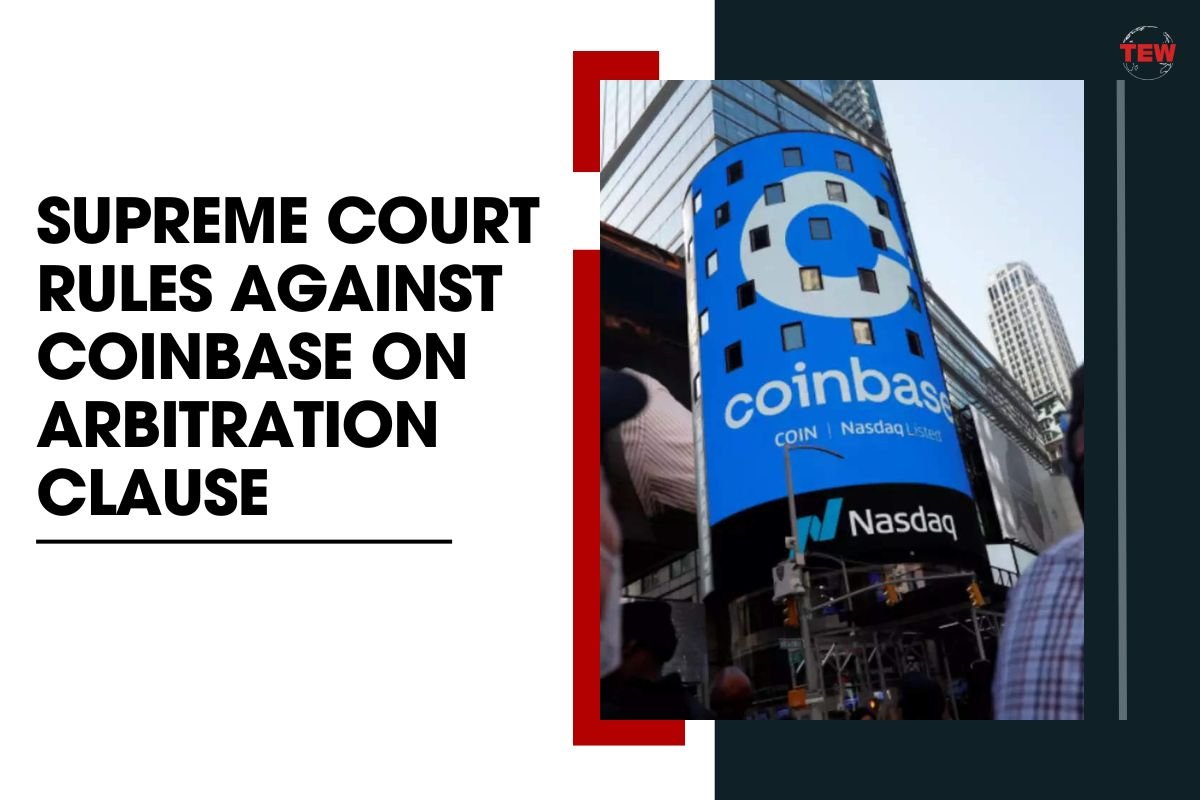(Source – The Economic Times)
Coinbase Inc. faced a setback in its latest legal battle as the U.S. Supreme Court ruled against the company on a narrow issue concerning arbitration agreements. The case revolved around which legal agreement should govern when parties are bound by two distinct contracts, with the first contract mandating arbitration. Supreme Court rules against Coinbase: The court found Coinbase’s argument “unpersuasive” and stated that courts must resolve these questions as they arise. This decision, though significant, is far removed from the company’s core cryptocurrency business. However, arbitration issues are becoming increasingly critical in the technology sector.
The dispute originated from a disagreement over whether an arbitration clause in an initial contract should control the outcome of a subsequent contract linked to a Dogecoin sweepstakes competition held by Coinbase in 2021. Justice Ketanji Brown Jackson, writing for the court, explained, “The question whether these parties agreed to arbitrate arbitrability can be answered only by determining which contract applies. When we home in on the conflict between the delegation clause in the first contract and the forum selection clause in the second, the question is whether the parties agreed to send the given dispute to arbitration – and, per usual, that question must be answered by a court.”
Mixed Record at the Supreme Court
This ruling was not the outcome Coinbase had anticipated. The company did not immediately respond to requests for comment on the decision. Justice Jackson, in the court’s opinion, addressed Coinbase’s concerns about potential chaos from this ruling, stating, “We do not believe that such chaos will follow.”
The loss marks a mixed record for Supreme Court rules against Coinbase, as the company previously won a different arbitration-related case. Coinbase’s Chief Legal Officer, Paul Grewal, expressed a pragmatic view on the decision in a post on X, saying, “Some you win. Some you lose. We are grateful for having had the opportunity to present our case to the Court and appreciate the Court’s consideration of this matter.”
Richard Silberberg, an arbitration lawyer with Dorsey & Whitney and a director of the New York International Arbitration Center, noted that the decision’s narrow and unusual scenario will likely limit its impact on future arbitration-related jurisprudence. He added, “The unanimous SCOTUS decision that a court, not an arbitrator, must decide whether the parties’ first agreement was superseded by the second was hardly surprising,” given the direction of previous rulings.
Rollo Baker, a founding partner with Elsberg Baker & Maruri, emphasized the clarity of the ruling, stating, “The decision makes clear that where parties have two agreements, one that calls for arbitration and a later-executed agreement that calls for court resolution, it is not ‘unmistakably’ clear that the parties intended arbitrability to be resolved in arbitration.”
Supreme Court rules against Coinbase: While this case does not directly impact the cryptocurrency sector, the Supreme Court is expected to play a crucial role in resolving broader legal battles involving the industry and U.S. regulators in the future. However, it may take years for these cases to reach the high court.





